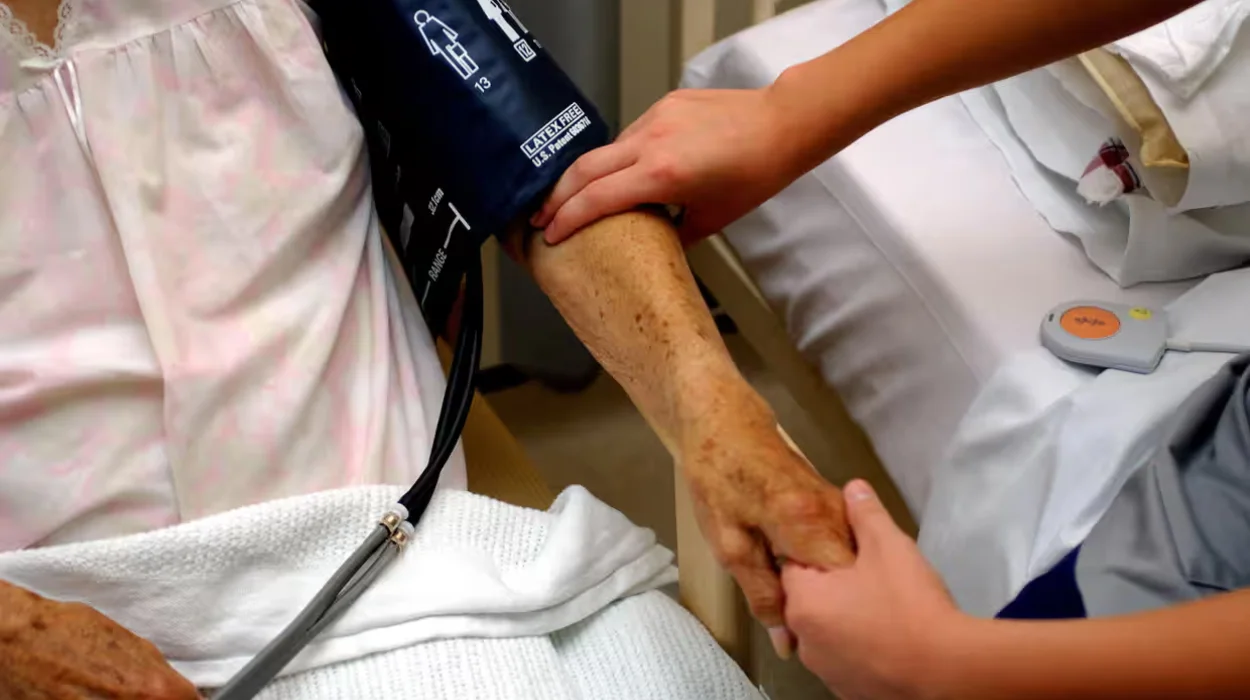UK (Parliament Politics Magazine) – The Royal College of Nursing criticizes ministers for delaying an investigation into migrant carers’ exploitation as workplace abuse reports rise.
The RCN accuses ministers of delaying an inquiry into migrant carers’ mistreatment. Despite repeated complaints regarding low wages, overcrowded housing, and illegal fees, the union says the government has yet to take action.
What did Nicola Ranger urge the Home Secretary to do about migrant carers’ abuse?
The general secretary of the Royal College of Nursing, Nicola Ranger, has urged Home Secretary Yvette Cooper to fast-track an inquiry into the abuse faced by foreign care workers. She highlights the rising concerns in the sector.
Ms Ranger wrote in her letter, “The RCN is deeply concerned by reports of exploitative workplace practices that many international educated nursing staff in the care sector face. Our members report a range of issues from long working hours, excessive repayment fees to exit contracts, substandard and crowded accommodation, and illegal work finding fees.”
The general secretary said, “I am concerned that based on current timelines, the creation of the single enforcement body – subject to the passing of the employment rights bill – will not be until spring 2026 at the earliest. A subsequent investigation is likely to take several months to conclude.”
She continued, “In the meantime, these exploitative practices will continue, and I fear, will become more frequent. I urge officials in the Home Office and across government departments to launch the promised investigation now to ensure that victims are not let down by lengthy processes.”
What did Yvette Cooper promise about investigating migrant care workers’ abuse?
Last June, Ms Cooper pledged to launch an investigation into the experiences of foreign workers in the UK social care sector after the Guardian revealed widespread mistreatment allegations.
At the time, she called the Guardian’s findings a “disgrace” and insisted on a comprehensive inquiry to ensure accountability and take action against those responsible for exploiting workers.
Following its election victory, Labour announced plans to carry out the inquiry via a newly established employment regulator, as part of the employment rights bill. However, the government has not yet defined the regulator’s scope, implying it may take several more months to process.
What did the investigation reveal about migrant nurses’ exploitation?
The inquiry revealed dozens of migrant nurses were convinced to pay large sums for their visas with the assurance of jobs, only to face a lack of work once they reached the UK.
To cope with the financial strain, some foreign workers were forced to share rooms, and even beds, with fellow workers.
The difficulties originated from the previous Conservative government’s decision to relax the rules for sponsoring care worker visas, a move made in response to address the ongoing staffing shortage in social care.
Although the government has pledged to tackle abusive practices by rogue employers and agencies, the RCN states it still receives more than 100 complaints each year from mistreated nurses.
Increase in abuse reports from migrant nurses and care workers
The Royal College of Nursing reports a dramatic increase in mistreatment of carers, with hotline calls rising from 12 in 2020 to 110 last year.
Numerous workers have raised concerns regarding “repayment” fees when attempting to leave their jobs, allegedly to settle debts claimed during the hiring process. A nurse who reached out to the union revealed that she was required to pay £25,000 to exit her job, marking the highest fee recorded by the RCN.
Migrants in the UK
The Office for National Statistics revealed that net migration to the UK was 728,000 in the year leading to June 2024, reflecting the difference between arrivals and departures.
The latest ONS figures show that 1.2 million individuals moved to the UK as of June 2024. Of these, 58,000 (5%) were British nationals, 116,000 (10%) were EU+ nationals, and a substantial 1 million (86%) were from non-EU+ nations.


